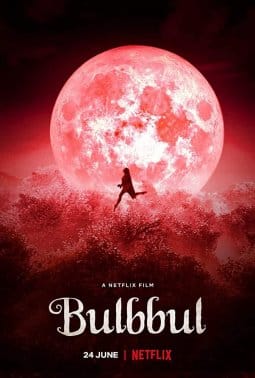
The word “Bulbul,” in its Persian origin, is a songbird with the sweetest voice who sings for her love, the rose.
Women in the movie are depictions of the songbird, singing their songs in their little orbits, in the definitions of their roles of life.
Set in the Bengal Presidency of 1881, Bulbul is the story that portrays the 150 years of the emancipation of women through the ages of child marriage, widow seclusion, ill-treatment and segregation of women and expectations of inferiority status in the society, despite their superior caste, as if being a woman was the lowest caste of all denominations for the community.
The graphic portrayal of the innocence of a child bride to an older man, the naivete of her friendship with her younger brother-in-law, the foreboding of the narration of the story of a female witch, all add to the specter of a beautiful narrative on screen.
The narrative that embodies elements of superstition, fable, mythology, and women’s liberation in a palette of ombre filters. The silent suffering of the women as they depict their silent suffering in a nuanced manner, but the personification of the rage of the witch who questions our presumptions and norms.
Tripti Dimri shines in the veiled indignation of her plight as the protagonist. Her camouflaged depiction of an emotionally enraged woman is perfect. Parambrata Chattopadhyay, Rahul Bose, Avinash Tiwary, and Paoli Dam keep their performances complimentary and infallible.
Anushka Sharma picks up another winner to produce. Anvita Das excels in the story, direction, and the entire screenplay of this immensely intelligent and well-directed venture.




